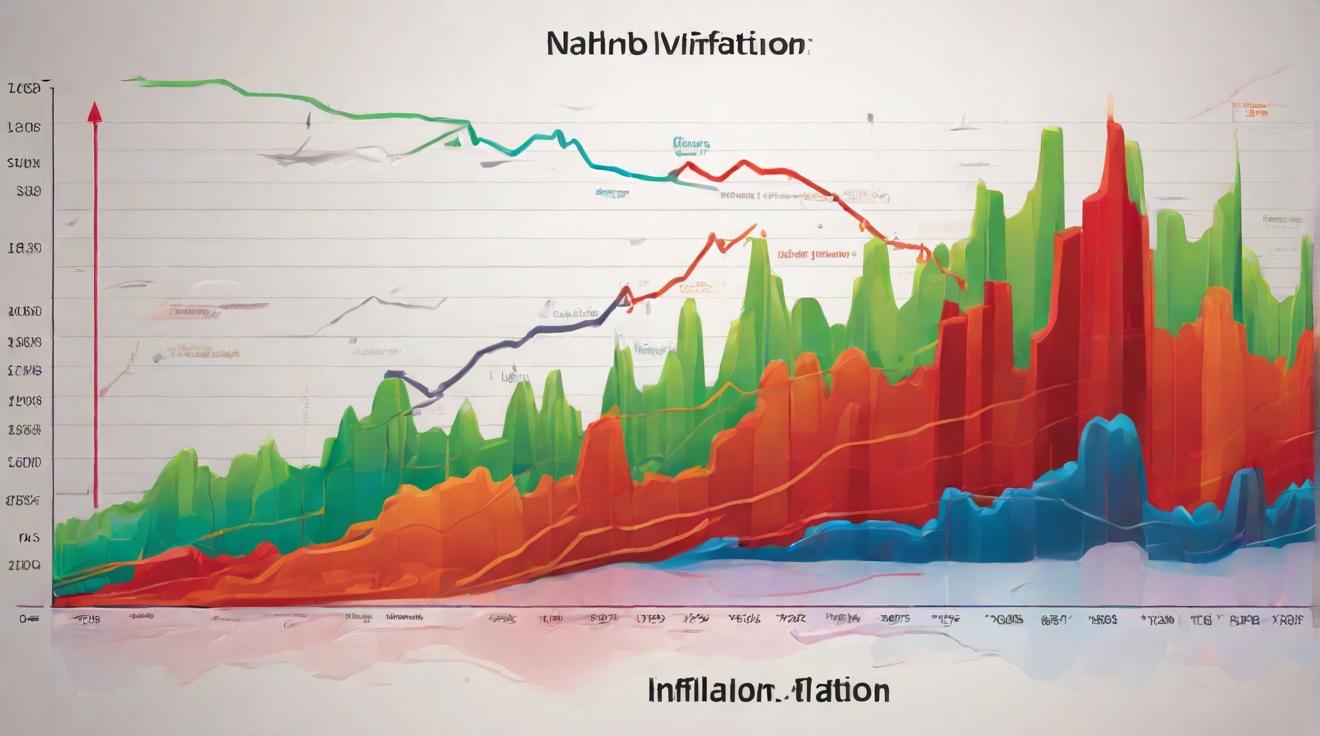Inflation Impacts on Consumer Stocks: A Detailed Analysis
In an unsettling development for the economic landscape, the latest inflation data has cast a looming shadow over the consumer sector. Consumer companies witnessed a sharp decline as inflation rates edged higher than anticipated, revealing the fragile balance between corporate expectations and economic realities. This article delves into the nuanced impacts of inflation on key players in the consumer industry, highlighting trends and making sense of the underlying influences driving the market.
Inflation's Toll on Home Builders
The resurgence of inflation has particularly rattled the home-building sector. The SPDR S&P Homebuilders ETF, a barometer for the industry's performance, experienced a 3.8% decrease, with its year-to-date gains pared back to approximately 2.5%. This setback underscores the investor's dwindling confidence, who had previously anticipated a retreat in inflation fostering a more conducive environment for lower borrowing rates.
Mixed Fortunes Amid Price Pressures
WK Kellogg emerges as a beacon of resilience amid the inflationary storm. The esteemed cereal manufacturer witnessed its shares ascend following its adept management of a 7.5% price hike to bolster its quarterly profits. Conversely, Coca-Cola encountered a decline, albeit less severe than the broader market downturn. The beverage giant reported a 12% surge in organic sales, attributing its growth to price adjustments and a promising 2% increase in case volume from the previous year.
The narrative of adaptation and challenges extends to Marriott International, which saw its shares dip after fourth-quarter revenue fell short of Wall Street forecasts, despite registering higher profits in the same quarter. Hasbro also found itself grappling with less favorable results, as it disclosed disappointing fourth-quarter outcomes amidst declining consumer and entertainment sales.
Strategic Movements in the Aviation and Retail Sectors
The aviation industry witnessed JetBlue Airways riding a wave of optimism as activist investor Carl Icahn disclosed a substantial stake in the company, injecting a dose of speculative growth into its valuation. On the retail front, Walmart has stirred the market with its potential acquisition of smart television-manufacturer Vizio, a deal rumored to exceed $2 billion. Such strategic moves highlight the ongoing shifts and realignments within the consumer sector as it navigates through inflation-induced turbulence.
Conclusion
The unfolding scenario paints a vivid picture of uncertainty and adaptability, with inflation casting long shadows over the consumer sector's growth and prospects. As companies wrestle with the dual challenges of maintaining profitability and satiating market expectations, the economic discourse will undoubtedly remain fixated on these developments. The coming quarters will be critical in determining whether these inflationary pressures subside or if they herald a prolonged period of economic adjustment for the consumer industry.
Analyst comment
Negative news: The latest inflation data has cast a looming shadow over the consumer sector, leading to a sharp decline in consumer companies. Home builders and some companies like Hasbro and Marriott saw their shares dip. However, WK Kellogg and Coca-Cola had mixed fortunes, with Kellogg’s shares ascending and Coca-Cola experiencing a decline. Strategic movements were observed in the aviation and retail sectors, with JetBlue Airways gaining optimism and Walmart potentially acquiring Vizio. The consumer sector’s growth and prospects remain uncertain due to inflationary pressures. The market will closely monitor future developments.













